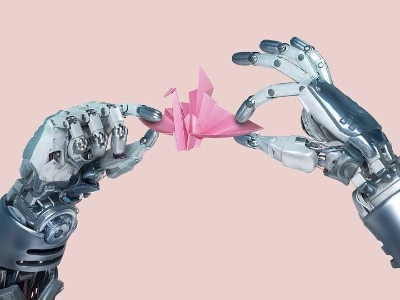
Blogs
Reflection on the last Expert Council on Economics
February 1, 2019


Anuar Buranbayev
partner
A little reflection on the Expert Council on Economics held today, where the phenomenon of Industry 4.0 and its possible impact on Kazakhstan were discussed at the top level. Further, our subjective view on the cause of the phenomenon occurrence, possible alternatives and its manifestation in Kazakhstan.
1. What is Industry 4.0? The classic definition refers to the transition of production models to cyber physical platforms. In other words, information from a resource that supports physical production, input logistics, and distribution becomes one of the main input resources of production, logistics, and distribution processes. Why did this happen? This is a response to the need for deeper automation of production and business processes along the entire value chain, due to the need to reduce human participation as a result of the lack of people willing to work in industrial production. In the absence of an operator, the material resources passing through the technological process must interact independently with the technological equipment without human participation, and then the same thing along the entire value chain. From here, there were RFID tags first and then moving towards the industrial IoT. The question is, WHAT FOR? If you read one of our recent posts about how to design a product, remember that we talked about 4 levels
-dream
-need
-problem
-pain and
that the best selling solutions and products are those that solve problems and relieve pain. So, for Germany, the birthplace of Industry 4.0, a person is a problem that turns into a pain. With an increasingly expensive and aging workforce, the trivial shortage of labour turns from a problem into a pain. The pain is compounded by the unwillingness of the shrinking millennium workforce to work in industrial enterprises, the hardships of the solidarity pension system, and so on. A reasonable question is what to do. And here comes the idea of Industry 4.0. What is ideal for the export model of the German economy. By means of deeper automation, the number of industrial workers will be reduced as much as possible, which will have a positive impact on the cost and sustainability of production systems. Since they are export-oriented, this will offset falling domestic demand. In other words, practically Germany's success in Industry 4.0 will be paid for by their importers. South Korea and Japan are in a similar situation. What do we see? These are the leading countries in Industry 4.0. They will say what about China? China will see the same trend over the next 10 years. "One family, one child" was of some use. So in accordance with the motives for these countries, Industry 4.0 solves a problem that turns into pain. This means that a strategic focus will be concentrated on solving this task and resources will be blocked.
A reasonable question, but can everyone follow it? What then? Here are the very details in which the devil is hiding. In the US, with its huge consumer market, the key task is to eliminate trade imbalances with Asian countries and return industrial manufacturing to the country to restore competencies. It turns out that the "service economy" does not work without industrial production. It is not possible to make industrial design without own industry, it is not possible to create advanced service products for industry without having it. However, this topic is a case. The States have a slightly different paradigm that reflects their view - the Advance Manufacturing. But the United States, with its steady influx of immigrants, has a less acute problem with an aging and shrinking labor force. They have this need. What this means is that they have a broader focus on digitalization. Due to the large domestic market and the dollar as a global monetary aggregate, they focus more on digitization of services. FANG is an American phenomenon today. No such global platforms come from Europe and Asia. Of course, there is China, with its unique experience, but for now its platforms and services are local.
For others, it is a dream, and as a rule, there is no focus of effort and resources left to fulfill them, because other "problems and pains" have to be solved. And the dream can wait.
2. A reasonable question, and what about RoK? For most of the economy, Industry 4.0 is even more than a dream. Perhaps only the extractive and commodity-producing sectors will feel some need, but not yet a pain or a problem. Since the state takes care of its main tax payers, creating preferential conditions for them. Remember the news about the investigation in the framework of the EEC between Russian and Kazakh metallurgists. Fines of $800 million have already been counted.
The others have no such thirst for digital transformation, as it does not solve their problems and pain. Enterprises compete internally and many for the state order, and here the competitiveness criteria are somewhat different. And the state's bright dreams of a beautiful digital industry will be shattered by the real needs of companies that have not reached even a half of the possible total factor productivity with the current available Industry 3.0 technologies. In addition, Industry 4.0 does not fit well with the concept of a "Universal Labor Society"; it would rather require recognition of the need for an Unconditional basic income.
all publications











